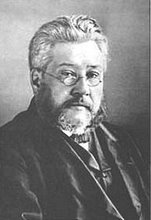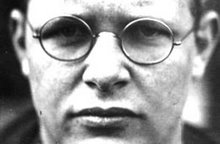Making History By Repeating It
This is what I wrote on my old blog on August 4, 2006 - regarding Israel's War on Hezbollah in Lebanon:
I wanted to write something about the current violence in the Middle East, but where to begin? I do understand that Israel needs to protect its borders, but personally I think that their military actions in Lebanon are a) disproportional and b) counterproductive (i.e. making more innocent victims, killing more soldiers on all sides of this conflict and causing more hatred everywhere in the region). However, it is very easy for me to judge such a complex conflict – sitting in my lazy chair in Holland. The situation is just too complicated for easy answers and even the brightest diplomats seem to have no solutions. I just feel so sorry for all the men, women and children in Israel and Lebanon and I can only pray for peace.
Talking about violence, war and peace issues… I just visited Scot McKnight’s Jesus Creed blog and was intrigued by this thought-provoking question he is posing:
Had the Apostle Paul lived to see the war of Rome with Israel in 66-73 AD, what would he have done? Here are some considerations:
I ask this consideration: Paul was not a soldier, but let’s put him either in that position or in the position, which is far more likely, to have been advising new Roman citizen Christians or Christians living in the Land of Israel.
1. Would he have fought on Rome’s side against Israel? (Citizenship duty.)
2. Would he have fought on Israel’s side against Rome? (Faith over citizenship.)
3. Would he have chosen not to fight because he was torn between two nations? (Pragmatics.)
4. Would he have chosen not to fight because he thought Christians should be concerned with the kingdom of God and the preaching and living out of the gospel? (Some kind of Christian pacifism.)
Personally my answer would be: 4. Paul was a Jew born in a Hellenistic environment (Turkey), but he also happened to be a Roman citizen. Yes, in many ways he was truly a man ‘of this world’ and I think these qualifications helped him to bring the Gospel throughout the Mediterranean area. But Paul only claimed these religious, cultural and national ‘identities’ if this turned out to be useful for the progress of the Gospel. Paul was first and foremost fighting a spiritual battle and I personally believe that he would always try to avoid physical violence. That certainly doesn’t mean that Paul was a coward, because physically he suffered enormously due to his courageous proclamation of the Good News (just read these words from 2 Corinthians 11:23-30).
There are already many interesting comments on Scot’s posting and I didn’t feel that I needed to add one more of my own. I fully agree with a comment posted by Kenny Chee - “I think Paul was a man consumed with a passion to preach the Gospel in regions where Christ is yet unknown. He would choose option 4, and be focused and faithful to the heavenly call and upward allegiance. As to what he would advise Christians on both sides of the conflict, he would probably ask them to follow their conscience and seek what would lead to peace of all men, something the leaders of both sides of the present conflict in Lebanon would do well to heed.”





.jpg)


























